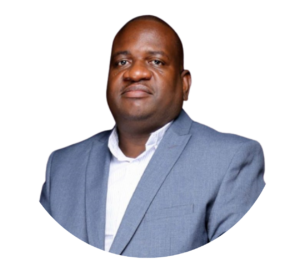So you want to be more productive, huh? Well, you’ve come to the right place! This article will explore some tips and tricks to help you up your productivity game. We’ve got everything covered, from study tips to time management strategies.
And don’t worry. It will not just be some generic advice you’ve heard a million times before. We will dive deep into the topic and give you some fresh and practical ideas to make the most of your precious time. So sit back, relax, and get ready to become the productivity guru you were always meant to be!
Now, let me introduce you to our featured 10-second short on being more productive! Created by Mooi Studies, it summarises the most important study tips, time management strategies, goal-setting techniques, personal growth hacks, and ways to work smarter. It’ll make you AC (absolutely cool) in no time!
So get ready and see how I expand on each of the tips. Let’s get down to business and make productivity our middle name! #gamechanger
Set Clear Goals

This image is the property of i.ytimg.com.
Define your objectives
Setting clear goals is crucial to improving productivity. It’s like having a roadmap to guide you towards success. Take some time to reflect on what you want to achieve and define your objectives.
Whether completing a project, finishing a course, or reaching a personal milestone, make sure your goals are specific, measurable, attainable, relevant, and time-bound (SMART). This way, you’ll have a clear direction and a sense of purpose.
Break goals into smaller tasks
Once you have your objectives, it’s time to break them into smaller, more manageable tasks. Big goals can sometimes feel overwhelming, but dividing them into smaller steps allows you to focus on one task at a time, making them more achievable.
It’s like slicing a large pizza into bite-sized pieces—more manageable to handle and digest. By breaking down your goals, you make progress more tangible and gain a sense of accomplishment as you tick off each task.
Write down your goals
There’s something magical about writing goals down on paper. It brings a level of commitment and accountability that simply thinking about them doesn’t. Grab a notebook or use a goal-setting app—whichever suits your style—and document your goals.
Writing them down helps solidify your intentions and constantly reminds you of what you’re working towards. Plus, crossing off completed goals from your list is undeniably satisfying and motivates you to strive for more.
Prioritise Tasks
Identify urgent and essential tasks
When we have a lot on our plates, it’s essential to identify the tasks that demand immediate attention and those that are truly important to our goals. Urgent tasks are time-sensitive and require immediate action, while essential tasks align with long-term objectives and contribute to your overall success.
By differentiating between the two, you can determine where to direct your focus and efforts, effectively managing your time and energy.

This image is the property of images.pexels.com.
Use prioritisation techniques
Once you’ve identified urgent and essential tasks, you can employ various prioritisation techniques to tackle them efficiently. One popular approach is the Eisenhower Matrix, a four-quadrant system that helps categorise tasks based on their urgency and importance.
The matrix consists of four quadrants: urgent and important, important but not urgent, urgent but not necessary, and neither urgent nor essential. Prioritising tasks using this matrix allows you to allocate your time and resources effectively, ensuring you address the most critical tasks first.
Eliminate or delegate nonessential tasks
In maximising productivity, it’s important to distinguish between tasks that contribute to your goals and those that are just time-wasters. Identify nonessential tasks that can be eliminated or delegated to others. Freeing up your schedule from activities that don’t align with your objectives allows you to focus on what truly matters.
Remember, time is a valuable resource, and eliminating or delegating nonessential tasks helps you make the most of it.
Manage Time Effectively

This image is the property of images.pexels.com.
Create a daily schedule
Managing time effectively starts with creating a daily schedule. Planning your day helps you allocate dedicated time slots for different activities and ensures that you make progress towards your goals. It’s like having a well-organised itinerary for productivity.
Consider factors such as your peak energy levels, preferred working hours, and the needs of your personal and professional life. By structuring your day, you’ll have a clear roadmap of what needs to be done, reducing the likelihood of wasting precious time.
Avoid multitasking
While multitasking might seem like the superhero ability you need to get everything done, it’s counterproductive. Our brains are not wired to handle multiple tasks simultaneously.
Instead of juggling multiple tasks at once and constantly switching focus, try monotasking—dedicating your full attention to one task at a time. This allows you to work more efficiently, maintain focus, and produce better-quality results.
So, resist the urge to multitask and embrace the zen-like state of monotasking for improved productivity.

This image is the property of images.pexels.com.
Use time-blocking technique
Time-blocking is a powerful technique for organizing your schedule. It involves allocating specific time blocks for different tasks or activities, like creating mini-deadlines.
Start by identifying the most important tasks or activities you must accomplish each day and assigning specific time slots to them. Committing yourself to these time blocks eliminates distractions and interruptions, allowing you to focus solely on the task at hand.
Remember, the key is to be realistic and flexible with your time blocks to avoid feeling overwhelmed or falling behind schedule.
Eliminate Distractions
Turn off notifications
In our hyperconnected world, notifications from email, social media, and messaging apps can be significant distractions. One minute, you’re focused on an important task, and the next, you’re engrossed in a funny cat video on your phone.
Turn off notifications on your devices during dedicated work sessions to combat this productivity thief.
You’ll be less tempted to reach for your phone whenever it buzzes or flashes. By eliminating these distractions, you create a focused and uninterrupted environment, allowing you to accomplish more in less time.
Create a dedicated workspace
Having a dedicated workspace is essential for minimising distractions and maximising productivity. Instead of working from your comfy bed or the couch where leisure activities beckon, set up a designated area specifically for work or study.
This could be a home office, a corner of your living room, or even a spot at the local coffee shop. Creating a physical boundary between your work and leisure environments helps your brain associate that space with focus and productivity.
So, find your spot, set up your workspace, and get ready to achieve more without the lure of Netflix or the fridge.
Manage interruptions
No matter how well you eliminate distractions, interruptions are bound to happen occasionally. Interruptions can disrupt your flow and hinder productivity, whether it’s a family member bursting into your workspace or a sudden phone call.
To manage interruptions effectively, communicate your boundaries and set expectations with those around you. Inform your family or roommates about your work hours and ask for their cooperation in minimising disruptions. For unexpected interruptions, learn to quickly assess their urgency and address them efficiently without derailing your focus.
Conclusion
This article offers a comprehensive guide to enhancing productivity, featuring practical tips and tricks. It encourages setting clear goals and emphasising the importance of specificity, measurability, attainability, relevance, and time-bound objectives.
Breaking down larger goals into manageable tasks is likened to slicing a pizza into bite-sized pieces for easier handling.
The article recommends writing down goals for increased commitment and accountability. Prioritising tasks involves identifying urgent and important activities, utilising techniques like the Eisenhower Matrix, and eliminating or delegating nonessential tasks.
Effective time management is emphasised, advocating for a daily schedule, avoiding multitasking, and employing the time-blocking technique, among other things.
Recommended books for inspiration
For more inspiration, I recommend reading or listening to the following books:
- “The 7 Habits of Highly Effective People: Powerful Lessons in Personal Change” by Stephen Covey. Purchase Link: https://amzn.to/3U3LVUY
- “Deep Work: Rules for Focused Success in a Distracted World” by Cal Newport. Purchase Link: https://amzn.to/47Z2KUx
- “Getting Things Done: The Art of Stress-Free Productivity” by David Allen. Purchase Link: https://amzn.to/3Uaa24u
- “Essentialism: The Disciplined Pursuit of Less” by Greg McKeown. Purchase Link: https://amzn.to/4b8EX7l
- “How to be a Productivity Ninja: Worry Less, Achieve More and Love What You Do” by Graham Allcott. Purchase Link: https://amzn.to/3vJcBAh
- “Scrum: The Art of Doing Twice the Work in Half the Time” by Jeff Sutherland. Purchase Link: https://amzn.to/48GUwS0
📚 BUY Books & Other Resources On Amazon:
➡️ https://www.amazon.com/stores/George-Mwika-Kayange/author/B0CCJX2PFS
AFFILIATE DISCLOSURE:
This article contains affiliate links, meaning I’ll receive a small commission if you click on one of the product links. The affiliate relationship does not influence my opinion, and I would not endorse programmes, products, or services I didn’t use or feel familiar with.
This helps support this website and my YouTube channel and allows me to continue creating content like this. So, if I use these links to support myself, I greatly thank you.


